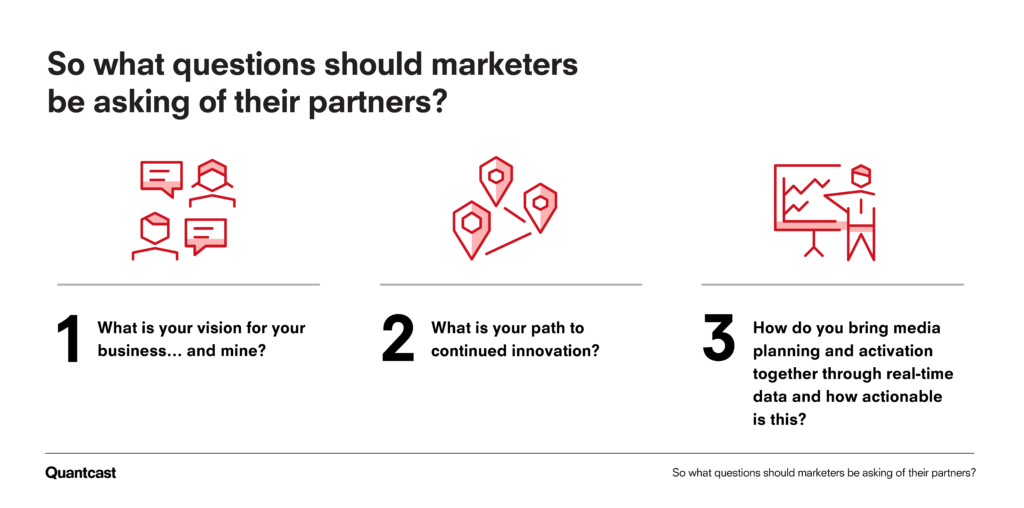Not known Factual Statements About mastering the post cookie
Table of ContentsSome Known Factual Statements About mastering the post cookie mastering the post cookie Can Be Fun For Anyone5 Easy Facts About mastering the post cookie DescribedThe smart Trick of mastering the post cookie That Nobody is Talking About
Third-party cookies have been a staple of digital advertising and marketing for several years, however as privacy issues grow, many internet browsers are phasing out assistance for them. This implies that advertisers will certainly require to find brand-new methods to accumulate information as well as target ads that value user privacy while still delivering reliable results.This involves accumulating information straight from their own website, mobile application, or other had channels. By collecting information straight from their clients, marketers can get useful understandings right into their interests, actions, and preferences. This information can then be made use of to create even more customized and also appropriate advertisement experiences that are customized to every person.
This implies targeting advertisements based on the context in which they are presented, such as the material of the webpage or app. By recognizing the context in which their ads show up, marketers can customize their messaging and also targeting to be much more pertinent and also effective, without relying upon third-party cookies. There are emerging innovations such as Google's Federated Discovering of Cohorts (FLo, C), which teams customers into mates based on their passions and also actions.
This method can aid marketers supply relevant ads without sacrificing individual personal privacy. The phase-out of third-party cookies offers both tests and opportunities for marketers. By focusing on first-party data, contextual targeting, as well as emerging innovations like FLo, C, advertisers can remain to provide efficient as well as appropriate ad experiences to their customers while valuing their privacy.
The Best Strategy To Use For mastering the post cookie
With the impending death of third-party cookies as well as recent restrictions on using mobile-device identifiers for advertisement targeting, business require to upgrade their advertising and marketing methods to plan for a significantly various landscape. 3 techniques can help firms get an advantage: using their own customer touchpoints to collect first-party information, producing partnerships to leverage second-party information, and try out contextual as well as interest-based advertising.
Brands sent out a wealth of messages and also ads right into the globe, hoping that a couple of would certainly find their desired targets. Online cookies and various other individual identifiers enabled firms to track people on the internet and also target their advertising to particular kinds of customers.
How can marketers prepare for this brand-new reality? Brand names that utilize their very own client touchpoints, share data with other companies, and experiment with targeting customers based on context as well as passions will certainly position themselves for higher development and also more customer acquisition.

The Facts About mastering the post cookie Revealed
In 2018, the European Union's General Information Protection Guideline (GDPR) imposed strict privacy and also safety and security steps, as well as much more nations have actually introduced similar guidelines ever since. While these advancements are these details welcome to numerous customers, they go to this web-site hinder companies' efforts to measureand maximizetheir return on financial investment in marketing. Marketers have lengthy counted on cookies to track customers across the open internet, showing targeted advertisements based upon an individual's browsing history.
Starting in mid-2023, Google's Chrome web browser is anticipated to obstruct third-party cookies, which are already blocked in Safari and Firefox (see sidebar "Reference"). Due to the fact that Chrome is the leading internet browser in large parts of the worldits market share in Europe goes beyond 60 percent, Google's expected cookie policy will properly place an end to cookie-based advertising.
In the mobile-app area, Apple already calls for app companies to obtain explicit approval from customers prior to tracking them via device identifiers as component of its app-tracking-transparency (ATT) structure. Preliminary monitorings recommend that only about 46 percent of customers will consent to be tracked, as well as the percent can be even lower in countries in which individuals are particularly concerned regarding privacy.
Significantly, both Google and Apple have actually claimed that they will neither produce neither support workarounds, such as probabilistic fingerprinting, to construct user-level accounts in their ecological communities. The majority of onlookers believe that in the short term, the phasing out of third-party cookies and tool identifiers will certainly have a detrimental effect on advertising and marketing efficiency as well as thus on advertising and marketing ROI.
Unknown Facts About mastering the post cookie


Information that are gathered passivelywithout the user's straight involvement yet with the customer's consentare recognized as first-party information. They consist of such information as surfing habits, web content intake, location, gadget, as well as time of day. While this info is beneficial, it isn't enough to recognize the full customer trip and also sustain the advancement of granular user profiles, allow alone personalized material.